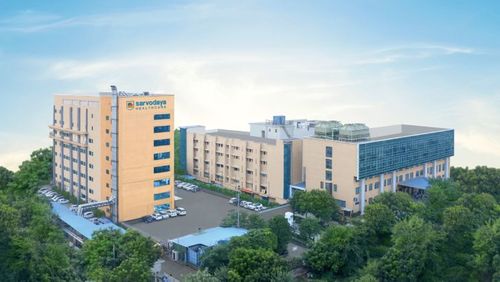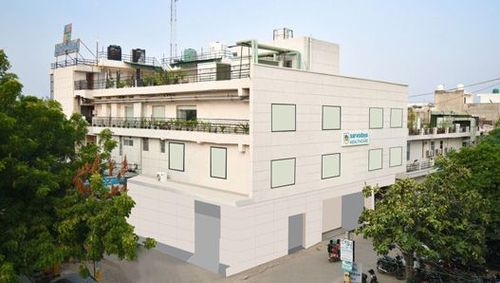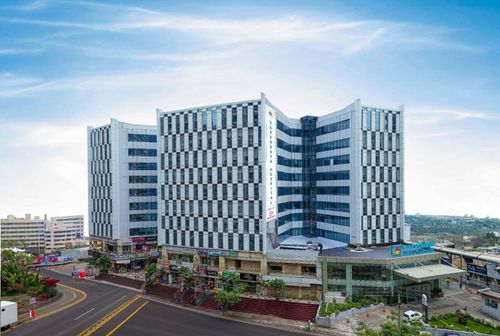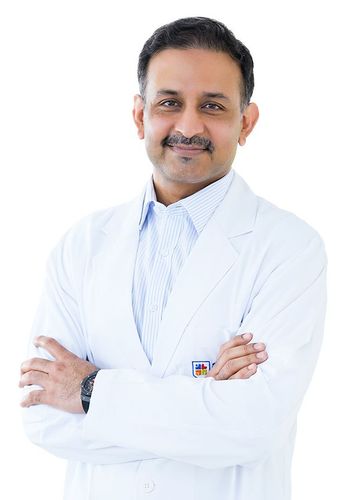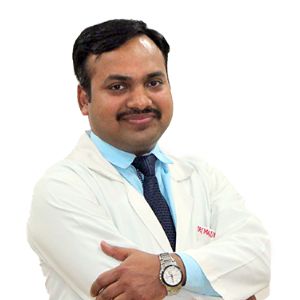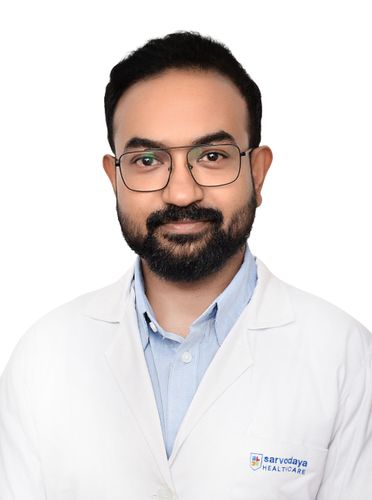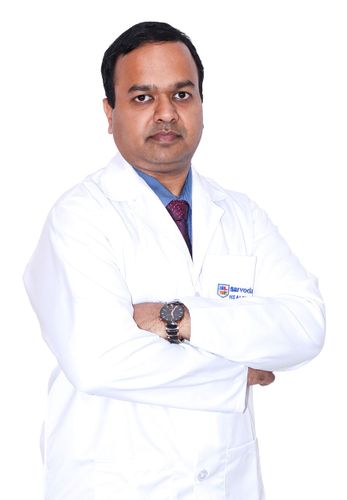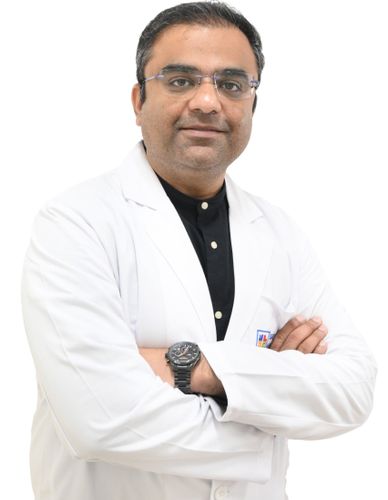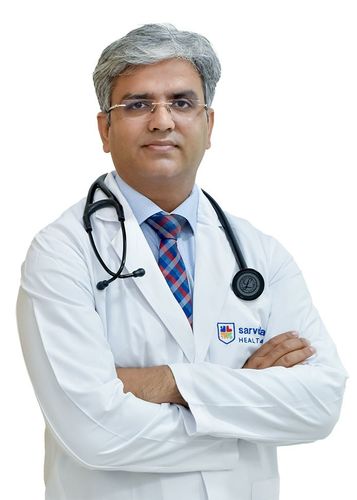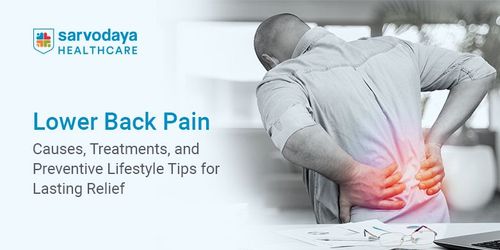Overview
Back pain is one of the most common reasons people seek medical care, often caused by poor posture, injury, disc issues, or degenerative spine conditions. It can range from a dull ache to sharp, debilitating pain affecting movement and daily life.
At Sarvodaya Hospital, our expert team offers personalised lower back pain treatment using advanced diagnostics, physiotherapy, medication management, and surgical interventions when necessary. Our comprehensive approach focuses on restoring mobility, relieving pain, and improving the patient’s overall quality of life.
Back Pain Symptoms
- Persistent ache or stiffness
- Sharp, localised pain
- Radiating pain down the legs (sciatica)
- Numbness, tingling, or weakness
- Increased pain
- Difficulty in bending, walking, or general movement
- Pain aggravated by activity
- Reduced flexibility or range of motion
- Muscle spasms
Causes of Back Pain
- Muscle or ligament strain
- Degenerative disc disease
- Herniated or slipped disc
- Spinal conditions
- Spinal arthritis
- Osteoporosis
- Traumatic injury or fall
- Sedentary lifestyle
- Obesity
Back Pain Diagnosis
At Sarvodaya, our specialists follow a structured, evidence-based approach to diagnosing the root cause of back pain. With the support of the best Spine doctor in Faridabad, we combine detailed clinical evaluation with advanced imaging techniques to create a personalised treatment plan that may include physiotherapy, medication, or minimally invasive surgical intervention if required.
- Detailed Medical History – Assessment of pain duration, triggers, posture, and daily habits.
- Physical Examination – Evaluation of spinal alignment, flexibility, reflexes, and muscle tone.
- X-rays – Useful in identifying bone fractures, arthritis, or spinal curvature abnormalities.
- MRI (Magnetic Resonance Imaging) – Provides detailed visuals of discs, spinal cord, and nerves.
- CT Scan – Offers a 3D view of spine bones, helpful when MRI findings need clarification.
- Blood Tests – Used to detect underlying infections or autoimmune inflammatory diseases.
- Nerve Conduction Studies / EMG – Measures nerve and muscle activity to detect compression or damage.
Prevention & Lifestyle Modification
Simple changes in lifestyle and posture can significantly reduce the risk of chronic back pain. At Sarvodaya, a leading Spine Surgery Hospital in Faridabad, Delhi NCR, we guide each patient on sustainable habits that not only prevent spine-related issues but also support long-term spinal health and effective recovery after treatment.
- Maintain Correct Posture – Sit and stand with your spine aligned to avoid undue pressure.
- Exercise Regularly – Build core strength and improve flexibility to support spinal stability.
- Avoid Heavy Lifting – Always lift using your legs, not your back; seek help when needed.
- Healthy Weight Management – Extra weight strains the lower back and worsens existing pain.
- Ergonomic Workspaces – Use supportive chairs, lumbar cushions, and height-adjusted desks.
- Quit Smoking – Nicotine restricts blood supply to spinal tissues, delaying healing.
- Stay Active – Break long sitting or lying periods with gentle walking or stretching.
Pre- & Post-Surgery Modifications
Pre-Treatment Modifications- Avoid activities
- Start physiotherapy or light stretches
- Follow a nutritious diet
- Manage stress levels
- Follow your rehabilitation plan
- Avoid sudden bending, twisting, or lifting,
- Stay mindful of your posture
- Continue physiotherapy sessions
- Resume daily activities gradually


